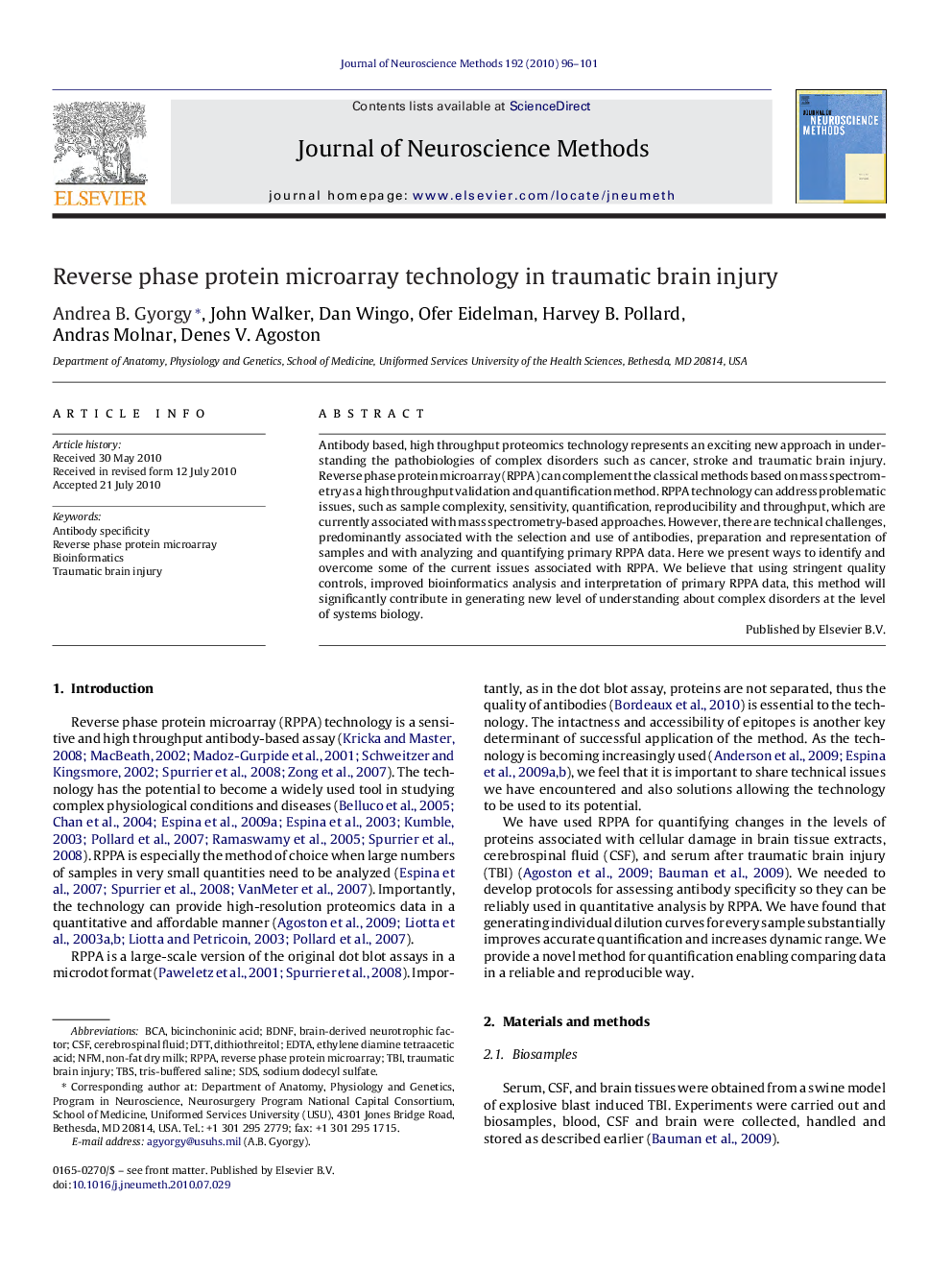| Article ID | Journal | Published Year | Pages | File Type |
|---|---|---|---|---|
| 4335526 | Journal of Neuroscience Methods | 2010 | 6 Pages |
Antibody based, high throughput proteomics technology represents an exciting new approach in understanding the pathobiologies of complex disorders such as cancer, stroke and traumatic brain injury. Reverse phase protein microarray (RPPA) can complement the classical methods based on mass spectrometry as a high throughput validation and quantification method. RPPA technology can address problematic issues, such as sample complexity, sensitivity, quantification, reproducibility and throughput, which are currently associated with mass spectrometry-based approaches. However, there are technical challenges, predominantly associated with the selection and use of antibodies, preparation and representation of samples and with analyzing and quantifying primary RPPA data. Here we present ways to identify and overcome some of the current issues associated with RPPA. We believe that using stringent quality controls, improved bioinformatics analysis and interpretation of primary RPPA data, this method will significantly contribute in generating new level of understanding about complex disorders at the level of systems biology.
Research highlights▶ Technical challenges of reverse phase protein microarray (RPPA) in TBI research. ▶ Sample preparation. ▶ Slide selection. ▶ Antibody selection and testing. ▶ Primary RPPA data analysis.
